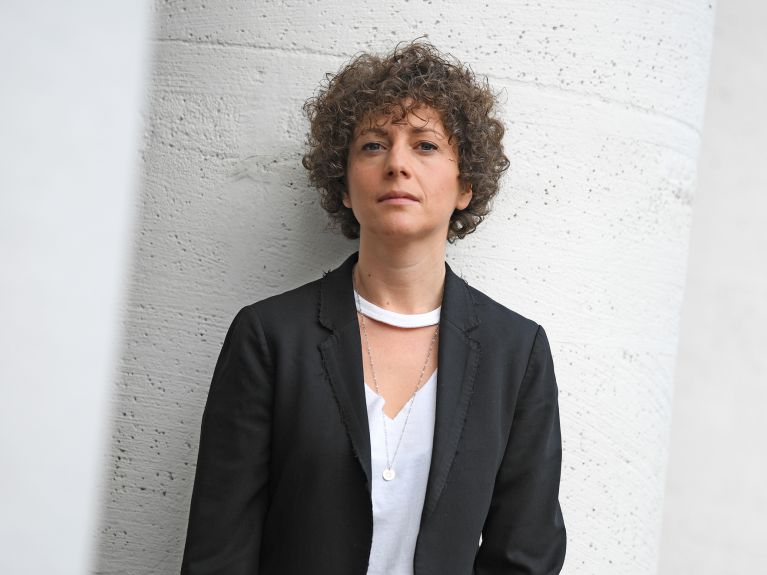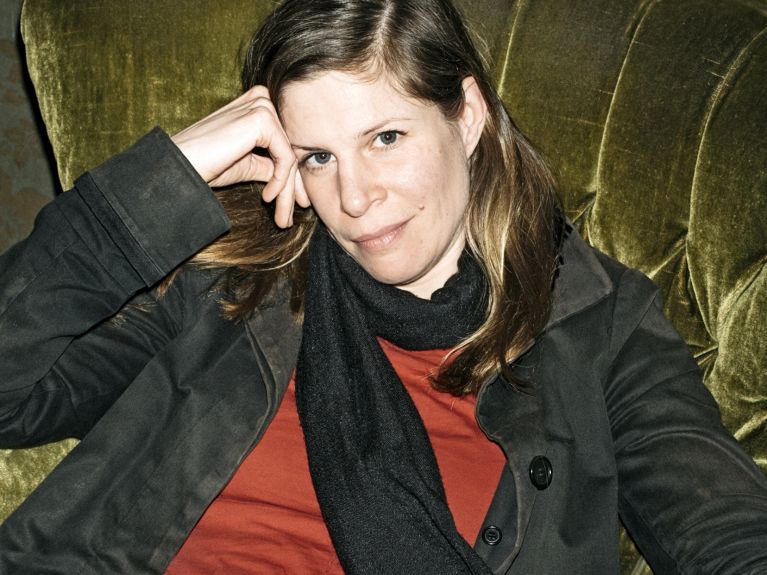Strong voices
The Frankfurt Book Fair presents thousands of authors. You should definitely get to know these three young German writers.

Germany. Not everything that’s new is good. And what is often termed “young literature” will possibly look pretty old and shabby a few years down the road. We dare to take the step anyway and present three young authors writing in German so refreshingly and with such verve, so close to reality or in such a surreal-fantastic vein that we will no doubt be hearing a lot more about them in years to come.
Sasha Marianna Salzmann
Who is she?
Born in 1985 in what was then still Soviet Volgograd, Sasha Marianna Salzmann has made a reputation for herself mainly as a playwright. Salzmann emigrated with her parents to Germany in 1995 and studied Literature, Theatre and Scenic Writing. She works as an editor and dramaturg. “Die Welt” newspaper wrote in 2016: “The Maxim Gorki Theatre is the ‘Theatre of the Year’. Among other things, we have Sasha Marianna Salzmann to thank for this, who runs Germany’s most exciting experimental stage there, the Studio Я.”
What does she write about?
Sasha Marianna Salzmann’s debut novel “Außer sich” toys with autobiographical elements. The protagonist Alissa, called Ali, emigrated from Russia to Berlin as a girl. She has a twin brother, who has disappeared. Her hunt for him leads to Istanbul and at the same time, in narrative terms, right across the 20th century and back to the Soviet Union in Stalin’s day. The book is a panorama and above all a storytelling tour-de-force through different styles. It is full of stories, wild, in fact violent and anarchic. It has been nominated for the Deutscher Buchpreis 2017.
Why should we keep an eye out for Sasha Marianna Salzmann?
In 2016, theatre journal “Die Deutsche Bühne” voted Salzmann the leading mind of the season: “With her sensitive eye for a brutal present and her biographical glances back, Salzmann is probably the playwright of the moment working in German.” And with her novel “Außer sich” she shows that she can also transpose the powerful language of her dialogues and descriptions onto an epic format. A dual talent that is very rare.
Robert Prosse
Who is he?
Robert Prosser is Austrian and was born in Tyrol in 1983. He studies Comparative Literature, Cultural and Social Anthropology and is co-founder of the Innsbrucker Lesebühne. With his writing, he has for many years taken part in performances. In August 2017 his debut novel “Phantome” was nominated for the Deutscher Buchpreis, and in October 2017 the novel made it onto the ORF Bestseller List.
What does he write about?
Robert Prosser is an emphatic realist. No language games, no antics. Above all, no self-referential questioning whether novels can really grasp reality. Prosser dares to tackle a dark chapter in recent history. He tells the story of the young Bosnian woman Sara, who travels to Bosnia-Hercegovina to track down her mother and reconstructs the events surrounding the Yugoslav civil war in the early 1990s. The novel is consciously not a panorama, but explores what war does to people, what violence does to a family. And how war and violence, even when they seem to have long since been overcome, continue to have an effect.
Why should we keep an eye out for Robert Prosser?
The way Prosser sets out to track down history, in part using reportage-like elements, brings the war in Yugoslavia firmly into the present. He shows that it is possible to write contemporary and modern fiction and yet still offer a good read. Prosser trusts in a very conventional way in his figures, who function as the anchors of the narrative, possibly also as figures for the reader to identify with, in order to convey events to us that we would otherwise possibly prefer to ignore. A political author in the best-possible sense of the term.

Maren Wurster
Who is she?
Maren Wurster was born in 1976 and lives in Berlin. She graduated in Theatre, Film and TV Studies, German Studies and Philosophy from Cologne University. In 2016 she completed a Master’s at Deutsches Literaturinstitut Leipzig.
What does she write about?
“The metamorphosis of the heroine in Maren Wurster’s debut novel ‘Das Fell’ has nothing to do with Kafka!,” wrote a reviewer almost imploringly of Maren Wurster’s novel. And yet we must certainly praise an author who dares to write a story of how a woman gradually undergoes a metamorphosis. Precisely because everyone will invariably immediately think of the Prague writer and the story of Gregor Samsa. Vic, who lives in Berlin, grows her fur (in German: “Das Fell”) while on a hike to the Baltic coast, where her lover is spending the summer holidays with his family. The tale is told in a very realistic vein, and the surreal-fantastic strand enters unobtrusively almost through the backdoor. The fur as a symbol remains a mysterious vacuum in the novel, laden with meaning, an enigma that doesn’t get solved.
Why should we keep an eye out for Maren Wurster?
The nonchalance, indeed almost impudence with which Wurster uses the theme of metamorphosis deserves real respect. Moreover, she often writes with such a quiet, magical tone that the reader does not immediately notice the outrageousness of which she tells.

International Frankfurt Book Fair from 10-14 October 2018.
